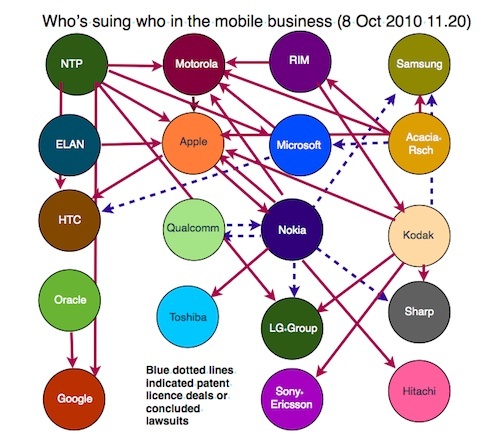

Ethics is the study of codes of behaviour of an individual
Morals are one's personal belief's about right and wrong
Integrity is the extent to which behaviour conforms to a moral or ethical position
Thou shalt not kill
Stick up for your mates no matter what they do
It's okay to cheat as long as you aren't caught
Abortion is a woman's right to choose
Copying music is okay if I can't buy it easily
Parents
Religion
Peers
Work organisation
Government
Most religions have some form of "thou shalt not kill"
Nearly every religion has authorised, approved or instigated killing - the rule has exceptions
Ethics derived from religion are not complete - can you live any lifestyle you want?
Religion is often inconsistent - "an eye for eye" vs "thou shalt not kill"
"God is good" - where does He get his morals from?
One school thinks that ethical behaviour is what society thinks is moral, and only that
Prior to 1967 Aborigines in Queensland were not allowed to vote - were Queenslanders exhibiting moral behaviour in denying them the vote?
Conversely, were Victorians moral in allowing them to vote?
If morals are decided by society, then any attempt to change them must be immoral by definition
Ethics encodes acceptable behaviour such as "workplace discrimination is wrong"
Actions can be legal but morally wrong
Actions can be illegal but morally right
"If it's good for me then it is correct behaviour"
Often the converse
Most professional societies have a code of ethics
These are expected behaviour of professional activities
They may be vague, too general or not even about ethical issues
From
ACS Code of Ethics :
"You must uphold and advance the honour, dignity and
effectiveness of being a professional. This entails, in
addition to being a good citizen and acting within the
law, your adherence to the following Society values:
SANS (SysAdmin, Audit, Networking, and Security) includes
I respect the privacy of my co-workers' information. I will not peruse or examine their information including data, files, records, or network traffic except as defined by the appointed roles, the organization's acceptable use policy, as approved by Human Resources, and without the permission of the end user.
I will obtain permission before probing systems on a network for vulnerabilities.
I respect the right to confidentiality with my employers, clients, and users except as dictated by applicable law. I respect human dignity.
I treasure and will defend equality, justice and respect for others.
I will not participate in any form of discrimination, whether due to race, color, national origin, ancestry, sex, sexual orientation, gender/sexual identity or expression, marital status, creed, religion, age, disability, veteran's status, or political ideology.
Computer and internet crime
Privacy
Intellectual property
Software development
Relation between users, managers and administrators
Over the last 2,000 years many ethical theories have been developed (Wikipedia: Ethical theories)
You are an administrator and discover one of the employees is downloading porn. Do you
It's okay to copy music files
Authors and inventors need to be able to benefit from their work
Using something that you don't have the rights to use is illegal
The RIIA (Recording industry), software publishers (e.g. Microsoft), etc, all claim that use of their products without payment is a crime
Property is protected by two means: copyright and patent
Copyright was invented in the UK about 1660 in order
to protect the rights of
Copyright is nearly always assigned by the author to the publisher as part of the publication contract
Authors have "the moral right to be recognised as the author" while publishers have the legal right to sue those who break copyright
The original copyright period (1710) was 14 years, extensible to 28 years; The US increased this to 42 years, then 56 years, then 75 years and - when the copyright on Mickey Mouse was about to expire - to 90 years
When the US first enacted a copyright law, it excluded English works, so that English publications could be "borrowed" while US ones were protected
Copyright protects "works of art" which has been extended from books to music to computer source code and even binary computer code
Copyright protects works of art, patent protects ideas
You can't copy a copyright document, but you can implement any patented idea - as long as you pay money to the patent holder
Patent law first started in 1474 and protected ideas for 10 years; the current period is typically 20 years
The original idea of patent protection was to give the inventor enough time to make a profit from the idea
After that the idea would enter the public domain i.e. anyone can use the idea for free
Patents have been extended to cover things like DNA and genetically engineered bacteria
A typical copyright statement forbids you from doing lots of things. Some generous ones are:
"Individual articles in this journal are copyrighted by the APS, as indicated on each article. Individual articles may be downloaded for personal use; users are forbidden to reproduce, republish, redistribute, or resell any materials from this journal in either machine-readable form or any other form without permission of the APS or payment of the appropriate royalty for reuse." (http://prl.aps.org/info/copyright.html)
"Except as otherwise expressly permitted under copyright law or Cardiff University's Terms of Use, the content of this site may not be copied, reproduced, republished, downloaded, posted, broadcast or transmitted in any way without first obtaining Cardiff University's written permission or that of the copyright owner." (http://www.cardiff.ac.uk/legals/copyright/index.html)

(http://cdn.macrumors.com/article/2010/11/02/001402-mobile_suits.jpg)
This American Life: Patents (http://www.thisamericanlife.org/radio-archives/episode/441/when-patents-attack)
Andrew Tridgell on walking around patents (http://endsoftpatents.org/2010/03/transcript-tridgell-patents/)
174.909.04 REY: Reynolds, GW, 2012 "Ethics in Information Technology," Course Technology, CENGAGE Learning
174.4 SHA: Shaw, WH, 2005, "Business Ethics," Wadsworth, CENGAGE Learning
174.9004 ETH: Bowyer, KW, 2001, "Ethics and Computing," IEEE Press
174.909.Q4 TAV: Tavani, HT, 2004, "Ethics Technology- Ethical Issues in an Age of ICT," Wiley